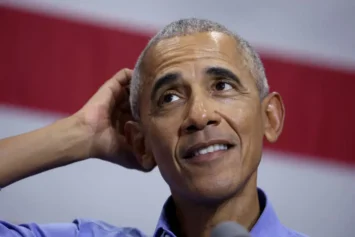As President Obama and the Democrats prepare for their big week on the convention stage in Charlotte, and Republican Mitt Romney uses the time to prepare for the October debates, Obama yesterday offered a vigorous defense of his healthcare law—something he doesn’t often do on the campaign trail.
First, the president once again embraced the name that Republicans have been using derisively since the law’s passage in 2010: Obamacare.
On Sunday, the president said, “I like the name.”
“I do care,” he said. “I don’t know exactly what the other side is proposing; I guess you could call it ‘Romney doesn’t care.’ But this law is here to stay.”
The Republican platform has focused considerable attention on the repeal of the law, presumably because it still appears to be fairly unpopular across the country. The last poll, conducted in March by Washington Post-ABC News showed 52 percent of Americans opposing the law. While it initially appeared that the Obama campaign would avoid engaging on the healthcare law, there appears to have been a change of heart—perhaps emboldened by the U.S. Supreme Court decision in June upholding the president’s healthcare law.
“On Obamacare, Republicans spent hundreds of millions branding Obamacare as a negative, and we believe we can turn that to our advantage,” said Stephanie Cutter, a spokeswoman for Obama’s campaign. “The term is incredibly popular with the president’s supporters, who will fight to the end to defend the law after 70 years of work to pass health reform.”
In addition, the Romney campaign may be a bit timid on going after Obama on healthcare with much gusto, since Obama’s law was based on the universal healthcare law that Romney proudly signed when he was governor of Massachusetts. As a matter of fact, in Romney’s official portrait that was commissioned by the state of Massachusetts, Romney chose to picture himself seated on top of his desk with a copy of the health reform law sitting proudly next to his leg.
But the Romney campaign now says that the Massachusetts law somehow was different—mainly because it was a state law, not a national one.


